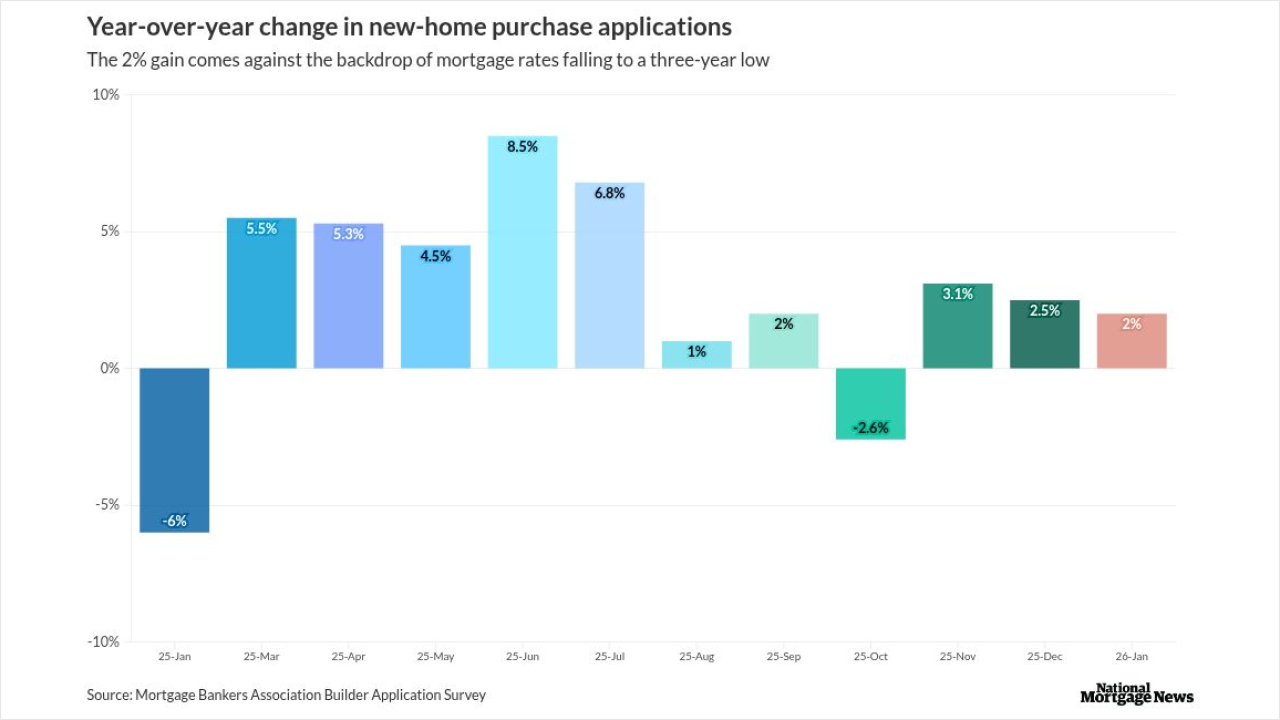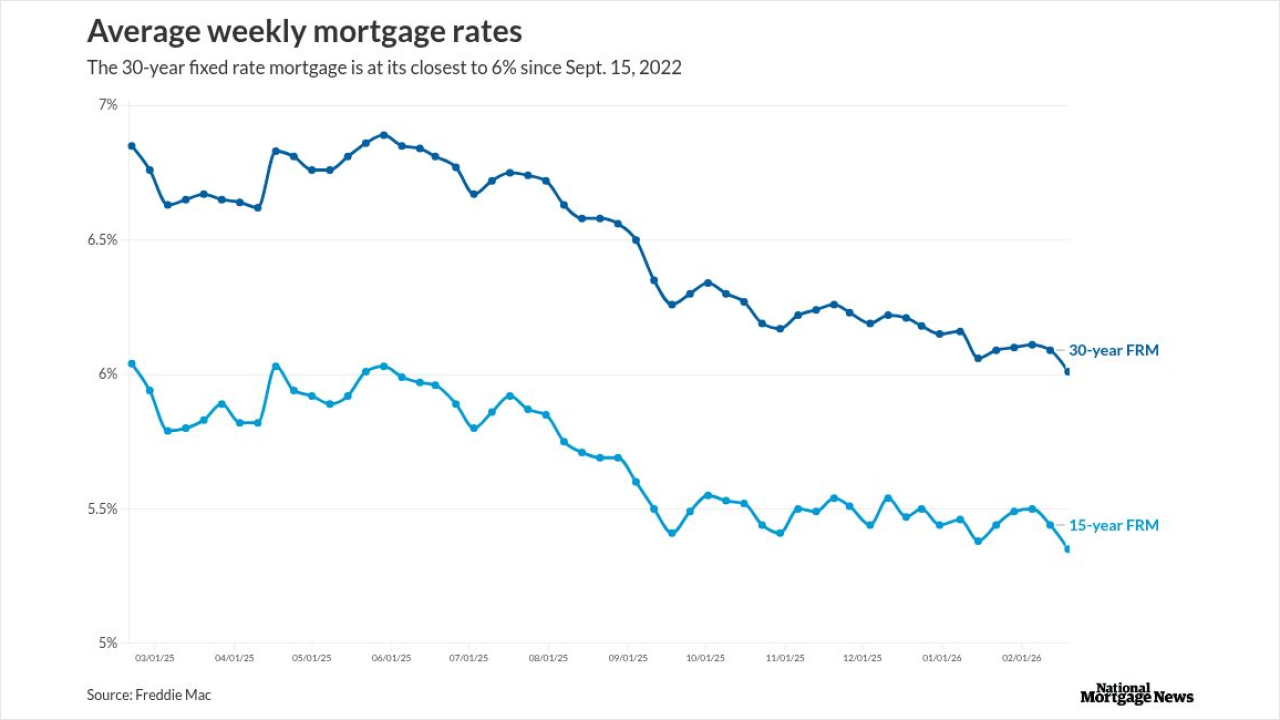Even as the residential mortgage-backed securities market experiences a swoon - with the Fed's anticipated rate-raising actions causing widespread jitters and hampering mortgage originations - MBS titan Lehman Brothers Inc. have once again proven its consistent commitment and ability to weather the storm, ranking as the number one MBS manager for first quarter 2000, according to Thomson Financial Securities Data.
With $9.1 billion in proceeds and 25 issues for the first three months, Lehman once again edged out competitors Credit Suisse First Boston and Salomon Smith Barney, who each ranked second and third for overall MBS, respectively.
"If the Fed keeps on raising rates, it's not going to get any easier," said Martin Harding, a Lehman Brothers managing director and co-head of MBS and ABS finance. "So I'm always a proponent of the fact that a lot of people can do fairly well and be profitable when times are good - but look at who's doing well and producing the paper when times are tough. Those are the real experts."
Indeed, Lehman's commitment to the marketplace distinguishes them from the other shops, who often back away from MBS or lose interest intermittently according to the ups and downs of the market. "This continues to be a core focus at Lehman, and you've got to look at the consistency we have in the market," Harding noted.
Of course, it didn't hurt that during this past quarter Lehman was the sole manager on the gargantuan $6.7 billion securitization from Washington Mutual, Inc., collateralized by selected 11th District Cost of Funds-Indexed adjustable-rate residential mortgage assets.
"The deal played right into our strengths," Harding said. "Our firm has a very close relationship with Washington Mutual. They were trying to rebalance their balance sheets, and this was part of a larger plan that the bank had as it reorganizes the way it does business; it wasn't just a matter of Let's do this deal'. It was part of a larger plan."
Despite the fact that collateralized mortgage obligation production declined in the market as a whole and Remic activity was low, Credit Suisse First Boston ranked second on the MBS league tables, with $5.6 billion in proceeds and 17 issues. First Boston was ranked fifth for the first quarter of 1999.
"Even though the absolute number of transactions was relatively low, the market overall remains relatively well balanced in the sense that the amount of sponsorship from our customer base remains strong," said Matt Ruppel, co-head of mortgage trading at CSFB. As a firm we fundamentally believe securitization trends will continue and we have a fair amount of resources devoted to finance and origination and structuring dimensions of our business.
"That is probably why we'll continue to maintain a large presence in the market," Ruppel said.
Salomon Smith Barney rounded out the top three positions, with $4.6 billion in proceeds and 11 issues. However, Salomon came in number one for agency MBS issuance, boasting $4.2 billion in agency mortgage-backed debt for the first quarter 2000. First Boston came in second for agency debt, with $3.3 billion in proceeds, and Merrill Lynch & Co. came in third, with $3.1 billion in GSE issuance.
March's biggest transaction was the $1.068 billion Fannie Mae 2000-11, underwritten by Merrill Lynch, which gave them the number two spot in agency MBS for the month. Merrill was ranked number one for agency MBS during first quarter 1999.
Choppy Waters Ahead
Activity dampened dramatically during the first quarter. In fact, for agency securities, issuance was less than one-third of the $99.1 billion of agency paper issued during the same period of 1999.
"We're being sanguine about the future," said Lehman's Harding. "Not only the GSEs but companies like Countrywide, who have to focus on their capital structure and other corporate finance aspects rather than just originating product. They go from fee generation - from refinancing mortgages - to, How do you stabilize your servicing component, in terms of how much capital you have to have to maintain a rating?'"
Still Harding speculates that the market is going to "see this treading water into the summer," but depending on the actions of the Fed, pent-up demand might cause a "real upturn" for MBS.
"There are investors out there who got used to buying MBS," Harding said. "If the Fed situation stabilizes ... there could be a nice uptick in the mid to late third quarter of this year."
Until then, Harding says, Lehman is working on how to acquire arbitrage deals via the Internet, and promises that the bank will be an innovator on the Web. "We're still incubating these ideas," he said. "Particularly with the downturn in the market right now, you have a lot of hot professionals over here that aren't just sitting around playing computer games. We have things in the works." -





